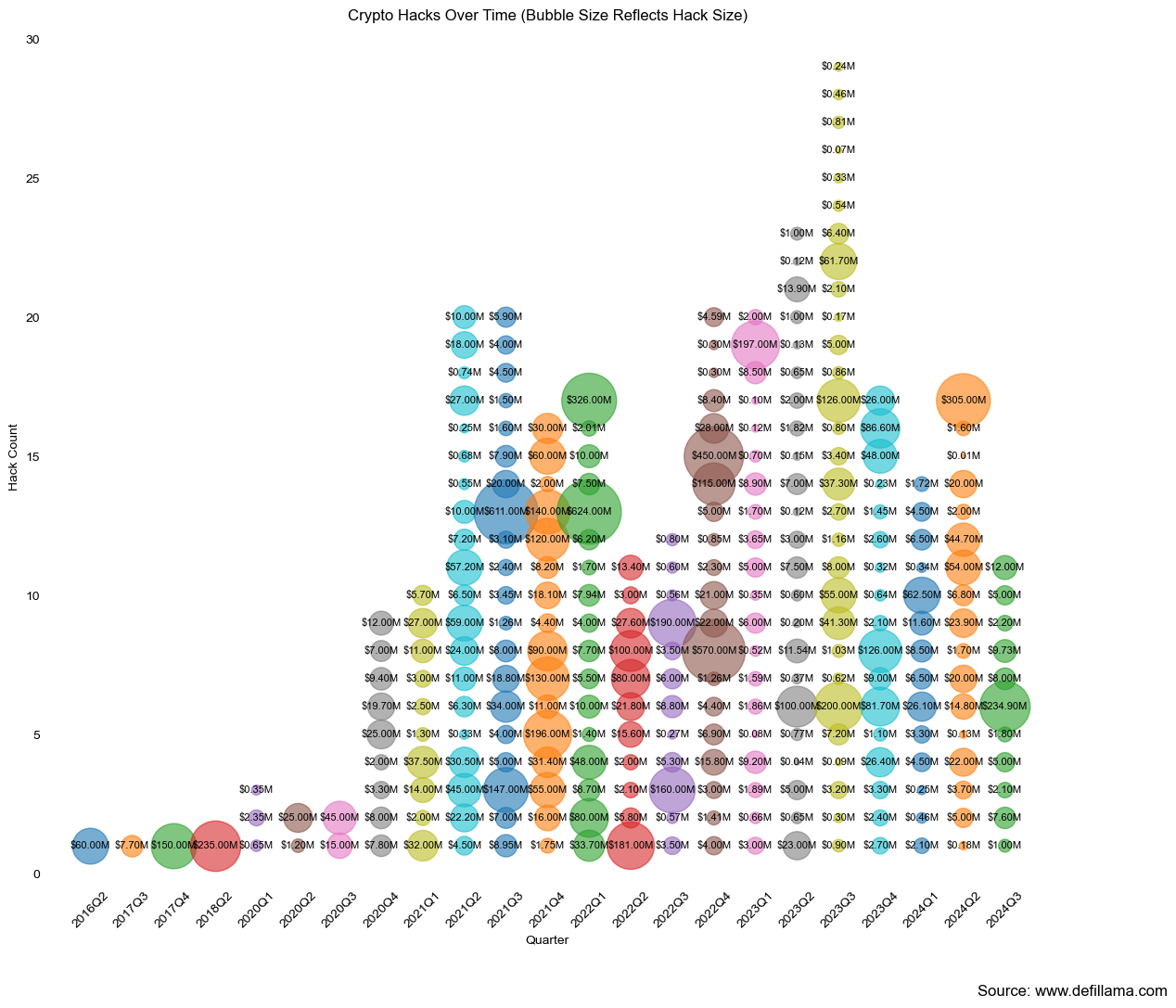Table of Contents
When Satoshi Nakamoto introduced Bitcoin in 2009, they envisioned it as a decentralized alternative to the traditional financial system – a peer-to-peer digital currency operating without intermediaries. Over the years, blockchain technology inspired a wave of innovations, including so-called smart contract platforms that can host decentralized applications (DApps).
However, over time, the motivations of many crypto actors evolved from building a new financial order to pursuing quick profits – even if cheating was required. This shift has led to critical issues that threaten the credibility of crypto.
Current issues
Large parts of the industry are unfortunately only obsessed with those quick profits, often achieved through scams like the 2022 FTX and Alameda fraud ($8 billion) and hacks like the 2022 Wormhole exploit ($326 million) and other attacks, rather than creating valuable solutions for regular users. Unfair value extraction has become a defining characteristic for many outside the small "crypto-native" community.

Over-financialization and a focus on speculation pose additional critical threats to crypto's long-term viability. In their recent Federal Reserve Bank of Kansas City working paper, researchers Hayashi and Routh cite the 2022 Survey of Household Economics and Decision Making, which noted that over 80% of cryptocurrency owners hold them for investment rather than to transact in the respective ecosystem. This lopsided fixation on speculation over utility alienates potential new users who are necessary for the industry to grow and fuels critics who question the legitimacy of emerging decentralized ecosystems. The markets, regardless of the recent issuance of ETFs, are currently trending sideways.
Counterargument: The Role of Speculation
Some may argue that speculation is necessary to provide liquidity, which is correct; even in mature markets, speculators have a role. However, a market cannot consist primarily of speculators – excessive speculation is detrimental. Natural demand is a critical ingredient for healthy markets. Unfortunately, the get-rich-quick attitude and unfair market manipulation by many crypto actors overshadows the technology's legitimately colossal potential. Liquidity is essential, yes, but without a corresponding increase in actual demand based on fundamentals, the market remains small, volatile, and prone to boom-and-bust cycles that undermine long- term confidence.
It's a Balance
Some always seek to exploit the system – that is a reality. Take the credit card industry as an example: While a minority of users engage in churning, or exploiting rewards programs, the core functions of credit cards are making payments and providing short-term credit. Most users rely on their cards to manage their finances rather than gaming the system. Currently in crypto, the stark tilt towards exploitation overshadows the purpose of the technology, risking its broad adoption.
Potential Benefits
Despite these challenges, blockchains – public and private – have the potential to transform industries by boosting network effects, enhancing transparency, reducing fraud, and increasing efficiency. For example, Walmart China uses VeChain to provide end-to-end visibility in supply chain management, allowing the company to track the provenance of goods. In finance, the Monetary Authority of Singapore's Project Guardian explores using blockchain for multiple use cases, such as maintaining records of fund shares, enhancing fund distribution, and facilitating improved secondary market trading. Public and permissionless blockchains also host stablecoins like Circle's USDC and WSPN's WUSD, which can facilitate more efficient cross-border transfers compared to traditional service providers, offering a compelling alternative to global remittances.
The vision stretches further: blockchains enable users to own their data when combined with privacy-preserving and Turing Award winning concepts like zero-knowledge proofs that enable know-you-customer (KYC) processes without disclosing an individual's details.
Frameworks that leverage these privacy-preserving concepts and promote accountability, such as CanDiD, an identity solution proposed by Cornell professor Ari Juels and co-authors, could enable regulatory compliance in the future and facilitate privacy protection. Even more, it could allow for sovereign data ownership, facilitating reallocation of value that currently accrues to a few "gatekeeper firms" on the internet back to the individual, something that Alessandro Acquisti and co-authors of their article titled "The Economics of Privacy" could only have dreamed about, just eight years ago.
Call for Change
For crypto to truly succeed on a global level, radical changes of mindset and attitude are needed. First, the community must identify and solve real problems. Second, it must prioritize user experience to attract and retain a broader user base beyond the currently tiny community of aficionados. Finally, and perhaps most importantly, thinking long-term rather than being obsessed with quickly extracting value, often through unfair and, at times, criminal behaviour at the cost of the less savvy, is mission-critical.
Open and permissionless blockchains have the potential to create a decentralized future that benefits all of us. And some individuals in the crypto industry are brilliant and have the required visions most of us may lack. However, a swift refocus on building valuable solutions is in order. The choice is clear: change now or fail shortly.
Dan is the founder of Lightbulb Capital, with operations in Hong Kong and Singapore. Dan is also an affiliate faculty member at Singapore Management University, where he teaches courses on Blockchain & Digital Assets and Decentralized Finance (DeFi). His research has been published in various academic journals. Additionally, Dan is the associate editor-in-chief of World Scientific's "Annual Review of Fintech" journal. His book "How Finance can Interact with Blockchain-based DAOs" (with Sandy Oh) will be published later in 2024. He is completing his PhD in Finance at Erasmus University and holds Master's degrees in Innovation (SMU) and Finance (IE).










